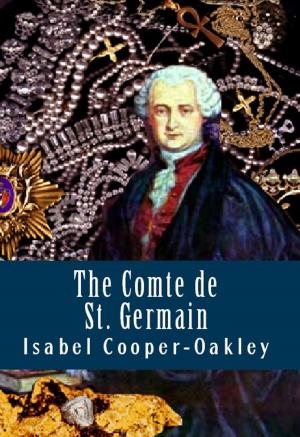Desire, History, State and the Destiny of Man in Hegel
Nonfiction, Religion & Spirituality, Philosophy, Political| Author: | Luca Luchesini | ISBN: | 9781301557769 |
| Publisher: | Luca Luchesini | Publication: | December 31, 2012 |
| Imprint: | Smashwords Edition | Language: | English |
| Author: | Luca Luchesini |
| ISBN: | 9781301557769 |
| Publisher: | Luca Luchesini |
| Publication: | December 31, 2012 |
| Imprint: | Smashwords Edition |
| Language: | English |
The book covers mostly the anthropological and political side of Hegel thought, as contained and explained in the lessons around the “Phenomenology of Spirit” held by Alexandre Kojeve in the 1930s at the “Ecole de Hautes Etudes” in Paris. The course gives a lot of background for granted, namely the historical context as well as the philosophical one, being targeted at classes of philosophy students. In order to highlight Hegel core themes, I deliberately removed all the references of Hegel to other philosopher and key themes of his time (that is, Hegel position with respect to Kant on, say, the theory of intellect and knowledge, or his position with respect to Descartes on the concept of idea etc.) while I added two chapters to briefly show how Hegel ideas actually influenced much of the thinking after him and still provide a lot of the conceptual framework we use today. Chapter 1 provides a very essential biography of Hegel, to cast him in the key events that shaped his life and thinking.
Chapter 2 gives a view on the task of philosophy as conceived by Hegel and the novel approach he introduced into looking at the development of ideas. Chapter 3 introduces the Master-Slave dialectic, according to Hegel the key mechanism that creates at once culture, society and history, as well as his vision of man and his action in the World. Chapter 4 expands on Hegel vision of History as it derives from his basic understanding of man and then how this evolves into his vision of Society and State. Chapters 5 and 6 provide a short overview of the main concepts inherited from Hegel by some major thinkers and how they tried to differentiate themselves from such a legacy. Chapter 7 tries eventually to draw some conclusion by figuring out what we can still be tremendously grateful to Hegel in our global 21st century, after that in the 20th century the darkest side of the philosopher thinking shaped in the bloodiest way the fate of entire countries through the rise and fall of totalitarian regimes across Europe and the world.
The book covers mostly the anthropological and political side of Hegel thought, as contained and explained in the lessons around the “Phenomenology of Spirit” held by Alexandre Kojeve in the 1930s at the “Ecole de Hautes Etudes” in Paris. The course gives a lot of background for granted, namely the historical context as well as the philosophical one, being targeted at classes of philosophy students. In order to highlight Hegel core themes, I deliberately removed all the references of Hegel to other philosopher and key themes of his time (that is, Hegel position with respect to Kant on, say, the theory of intellect and knowledge, or his position with respect to Descartes on the concept of idea etc.) while I added two chapters to briefly show how Hegel ideas actually influenced much of the thinking after him and still provide a lot of the conceptual framework we use today. Chapter 1 provides a very essential biography of Hegel, to cast him in the key events that shaped his life and thinking.
Chapter 2 gives a view on the task of philosophy as conceived by Hegel and the novel approach he introduced into looking at the development of ideas. Chapter 3 introduces the Master-Slave dialectic, according to Hegel the key mechanism that creates at once culture, society and history, as well as his vision of man and his action in the World. Chapter 4 expands on Hegel vision of History as it derives from his basic understanding of man and then how this evolves into his vision of Society and State. Chapters 5 and 6 provide a short overview of the main concepts inherited from Hegel by some major thinkers and how they tried to differentiate themselves from such a legacy. Chapter 7 tries eventually to draw some conclusion by figuring out what we can still be tremendously grateful to Hegel in our global 21st century, after that in the 20th century the darkest side of the philosopher thinking shaped in the bloodiest way the fate of entire countries through the rise and fall of totalitarian regimes across Europe and the world.















